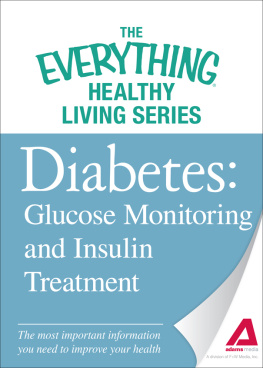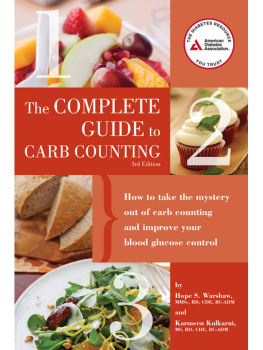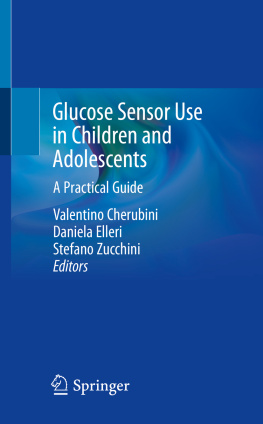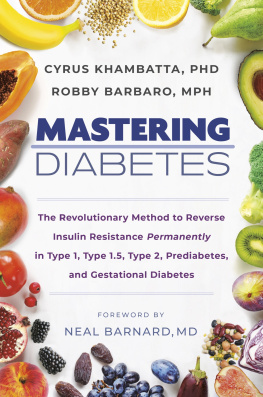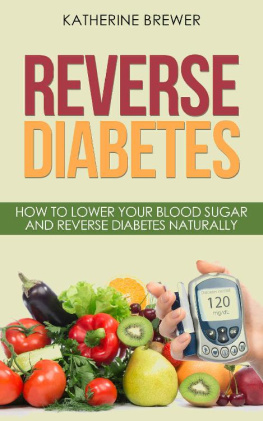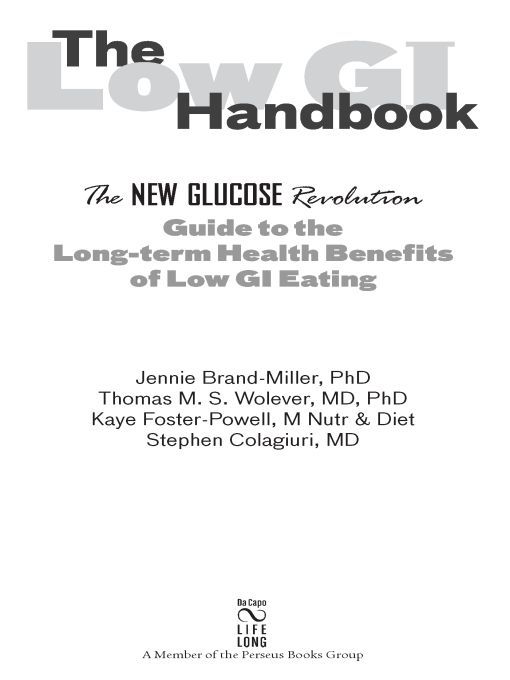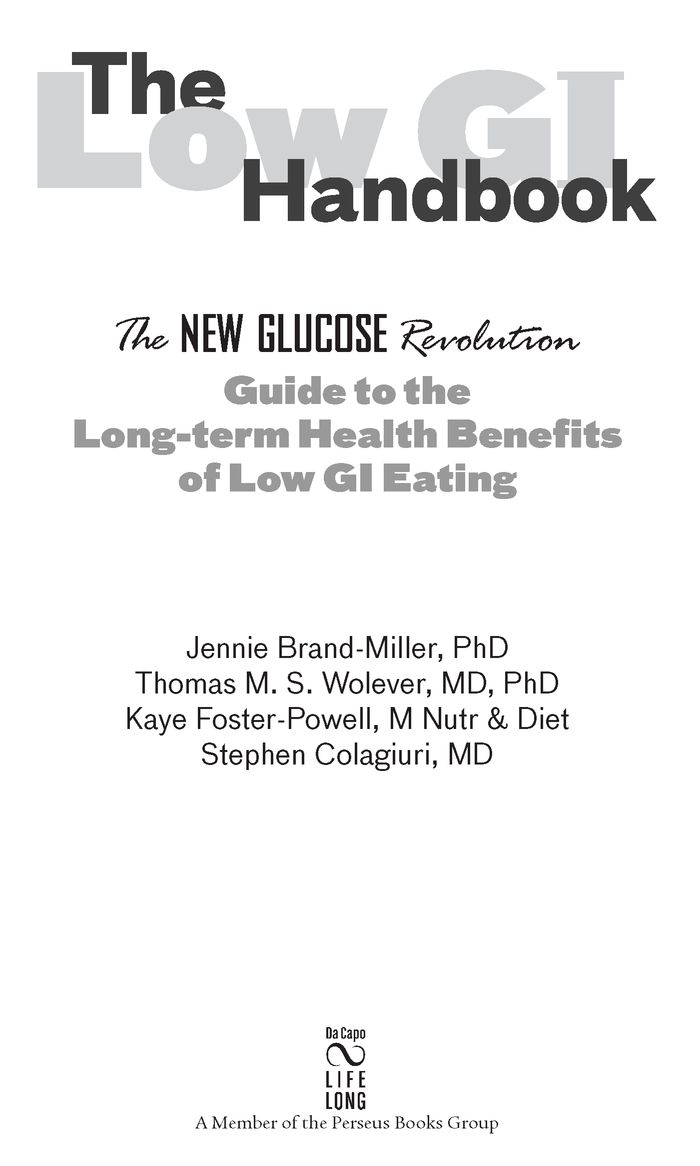Table of Contents
ACCLAIM FOR PREVIOUS EDITIONS OF
The Low GI Handbook
Jennie Brand-Miller and her research colleagues have done pioneering work, showing how the glycemic index can help you lose weight and improve your health. They are leading scientific authorities, and I often rely on their important findings in our research studies to help people reduce weight, control diabetes, tackle triglycerides, and return to health.
NEAL BARNARD, MD, founder and president, Physicians for Responsible Medicine, and author of eight books, including Dr. Neal Barnards Program for Reversing Diabetes and Breaking the Food Seduction
Forget Sugar Busters. Forget The Zone. If you want the real scoop on how carbohydrates and sugar affect your body, read this book by the worlds leading researchers on the subject. It is the authoritative, last word on choosing foods to control your blood sugar.
Jean Carper, bestselling author of Miracle Cures, Stop Aging Now! and Food: Your Miracle Medicine
Clear, accessible, and authoritative information about the glycemic index. An exciting, new approach to preventing obesity, diabetes, and heart diseasewritten by internationally recognized experts in the field.
David Ludwig, MD, PhD, Director, Obesity Program, Childrens Hospital, Boston, and coauthor, Ending the Food Fight:Guide Your Child to a Healthy Weight in a Fast Food/Fake Food World
The Glucose Revolution is nutrition science for the twenty-first century. Clearly written, it gives the scientific rationale for why all carbohydrates are not created equal. It is a practical guide for both professionals and patients. The food suggestions and recipes are exciting and tasty.
Richard N. Podell, MD, MPH, Clinical Professor, Department of Family Medicine, Robert Wood Johnson Medical School, and coauthor of The G-Index Diet: The Missing Link That Makes Permanent Weight Loss Possible
The New Glucose Revolution summarizes much of the recent development of dietary glycemic index and load in a highly readable format. The authors are able researchers and respected leaders in the nutrition field. Much that is discussed in this book draws directly from their years of experimental and observational research. The focus on dietary intervention and prevention strategies in everyday eating is an especially laudable feature of this book. I recommend this book most highly as an indispensable source of good nutrition.
Simin Liu, MD, MS, MPH, ScD, Professor, Department of Epidemiology, UCLA School of Public Health
Mounting evidence indicates that refined carbohydrates and high glycemic index foods are contributing to the escalating epidemics of obesity and type 2 diabetes worldwide. This dietary pattern also appears to increase the risk of heart disease and stroke. The skyrocketing proportion of calories from added sugars and refined carbohydrates in westernized diets portends a future acceleration of these trends... Brand-Miller and colleagues are to be congratulated for an eminently lucid and important book that explains the science behind the glycemic index and provides tools and strategies for modifying diet to incorporate this knowledge. I strongly recommend the book to both health professionals and the general public who could use this state-of-the-art information to improve health and well-being.
Joann E. Manson, MD, DrPH, Professor of Medicine, Harvard Medical School, and Codirector of Womens Health, Division of Preventive Medicine, Brigham and Womens Hospital
As a coach of elite amateur and professional athletes, I know how critical the glycemic index is to sports performance. The New Glucose Revolution provides the serious athlete with the basic tools necessary for getting the training table right.
Joe Friel, coach, author, consultant
OTHER TITLES IN THE New Glucose Revolution Series We have put together this handy guide to help you make the right choice for further reading or for more recipes.
Cookbooks
The Low GI Diet Cookbook: 100 Simple, Delicious Smart-Carb Recipes
The New Glucose Revolution Low GI Vegetarian Cookbook
The New Glucose Revolution Low GI Family Cookbook
Shopping and Eating Out
The New Glucose Revolution Shoppers Guide to GI Values 2010
Diabetes and Prediabetes
The New Glucose Revolution for Diabetes
The New Glucose Revolution Low GI Guide to Diabetes
What Makes My Blood Glucose Go Up... And Down?:
101 Frequently Asked Questions about Your Blood Glucose Level
Weight Loss
The Low GI Diet Revolution: The Definitive Science-Based Weight Loss Plan
The New Glucose Revolution Low GI Guide to Losing Weight
Heart Health
The New Glucose Revolution Low GI Guide to Your Heart and the Metabolic Syndrome
PCOS
The Low GI Guide to Living Well with PCOS
Celiac Disease or Gluten Intolerance
The New Glucose Revolution Low GI Guide to Gluten-free Living
Introduction
THE LOW GI HANDBOOK is the definitive guide to the long-term health benefits of low GI eating. The glycemic index (which we will often abbreviate as GI) is the universally recognized way to distinguish how different carbohydrates affect your blood glucose levels. It can help you choose both the right amount of carbohydrate and the right sort of carbohydrate every day and every meal. Eating the best sources of carbohydrates can positively affect your health todayand over the course of your entire life. That was the fundamental message of the original edition of this book, first published in 1996. Now, nearly fifteen years later, that message is more relevant to more people than ever before.
You probably know that your blood glucose levels rise and fall throughout the day, helping determine how you feel and how your body functions. (Blood sugar and blood glucose mean the same thing. Throughout this book we will use the term blood glucose, which is scientifically more precise.) Grounded in nearly thirty years of research, The Low GI Handbook thoroughly explains the relationship between carbohydrates and blood glucose and how the connection between the two affects your health, both immediately and later in life.
Who Can Use The Low GI Handbook?
Now more than ever, the glycemic index is for everybody, every day, at every meal. The GIas well as its newer companion concept, the glycemic loadis relevant for everyone. People concerned about heart healthwho are at risk for heart disease or heart attack or who have metabolic syndrome (insulin resistance syndrome, formerly known as syndrome X)will greatly benefit by putting into practice the findings and recommendations of The Low GI Handbook.
So, too, will women with polycystic ovarian syndrome (PCOS) and everyone interested in controlling his or her weight.
The Low GI Handbook is essential reading for everyone with diabetes and prediabetes, offering an alternative to misguided and often counterproductive dietary restrictions. Many people with type 1 or type 2 diabetes find that despite doing all the right things, their blood glucose levels fluctuate excessively and/or remain too high. If you or someone you are caring for has diabetes,


